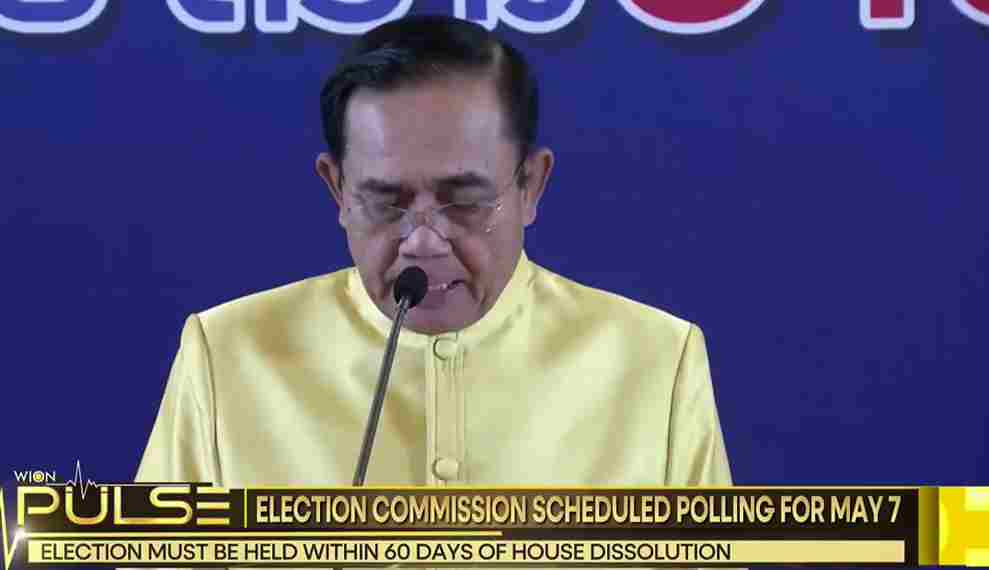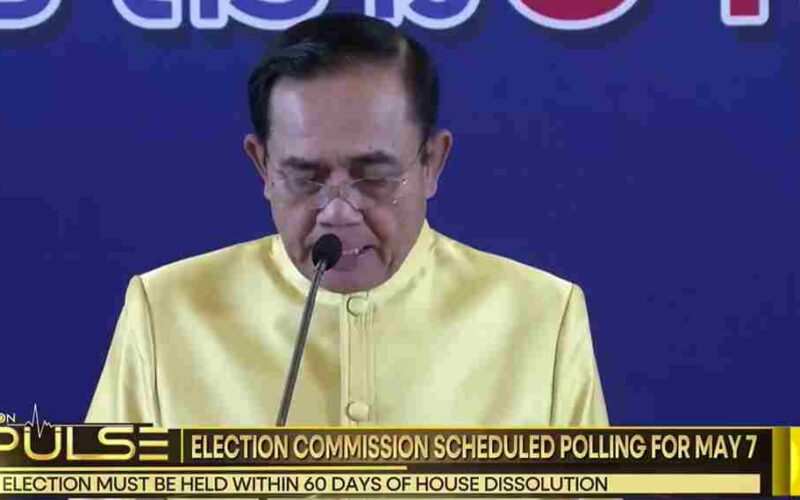Now ahead of elections, Thailand’s prime minister ordered the dissolution of the nation’s parliament. Chan-o-sha-tuk, this expected step as his government heads into the last week of its four-year term. Soon after the dissolution, the decree would require approval of Thailand’s monarch and would take effect once published in the Royal Gazette.

Although, an election must take place at least 45 to 60 days after the dissolution. The election commission initially scheduled polling for May 7th, but a final date will be confirmed later on. Chan-o-sha is betting on the return of millions of tourists and billions of dollars in stimulus programs in a hope that will help boost Southeast Asia’s second-largest economy and his election prospects.
However, he has to grapple with water discontent arising from living costs remaining elevated, even though inflation weakened to a 13-month low last month. Chan-o-sha, a retired general who has been in charge since leading a coup against the government of Yingluck Chinawat in 2014, will run under the new United Thai Nation Party and will be up against the few Thai parties Pitok Dhan Chinawatra.
